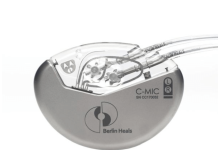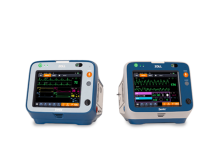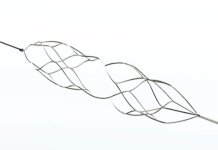Elixir Medical received FDA breakthrough device designation for its DynamX bioadaptive implant. The breakthrough nod covers the improvement of coronary luminal diameter, restoration of hemodynamic modulation and reduction of plaque progression in patients with symptomatic ischemic heart disease due to discrete de novo native coronary artery lesions. It follows a March breakthrough designation for treating chronic limb-threatening ischemia.
Related: Funding secured for CE approval of Berlin Heals Holding AG’s C-MIC device
Elixir Medical’s sirolimus-eluting DynamX bioadaptor features a novel design and mechanism of action designed to return the diseased vessel to a more normal condition. It works in three distinct phases.
First, after implantation, the locked phase establishes the maximum flow lumen. That restores blood flow to treat symptoms of coronary artery disease (CAD). Unique to the bioadaptor, the second phase occurs after tissue encapsulates the device. This process resorbs the absorbable polymer coating and enables the helical strands to unlock and separate. That releases and allows the vessel to grow and adapt to maintain the established blood flow lumen.
The third and most unique phase, according to a news release, provides the vessel adaptive dynamic support by the separated helical strands. This restores vessel viability and hemodynamic modulation by returning pulsatility, compliance, adaptive blood flow volume, and plaque stabilization and regression.
Elixir also noted that two-year data presented at EuroPCR 2024 demonstrated a statistically significant benefit of DynamX over the standard of care, the Medtronic Resolute Onyx drug-eluting stent.
“For many years, it was thought that caging of the vessel with stents was the main driver for annual increasing non-plateauing event rates. However, the data with the ‘leave nothing behind’ approach with bioresorbable scaffold technologies, showed non-plateauing event rates continue to occur even after resorption of the scaffold, so we needed a more innovative approach to restore vessel viability,” said Motasim Sirhan, CEO of Elixir Medical. “We very much appreciate FDA’s breakthrough designation recognition of the bioadaptor technology,” continued Sirhan. “We look forward to working with FDA, Centers for Medicare & Medicaid Services, and respective physician societies to bring this technology to U.S. patients as soon as possible to elevate the standard of care for cardiovascular disease treatment.”




